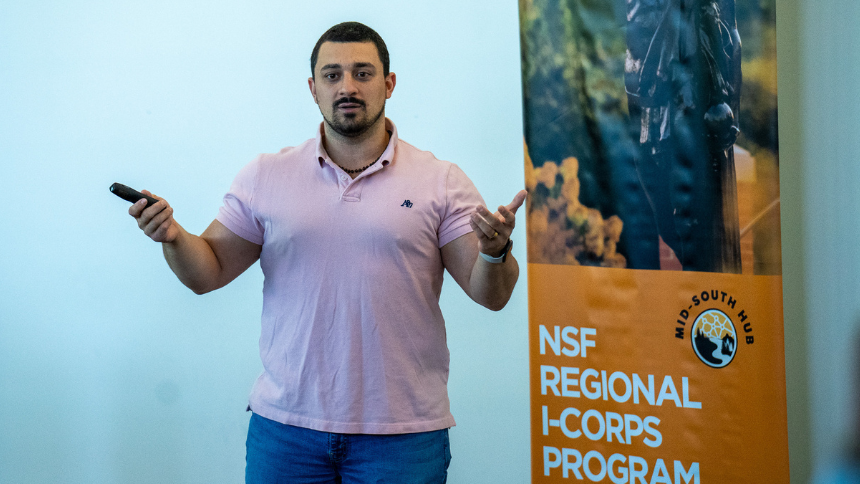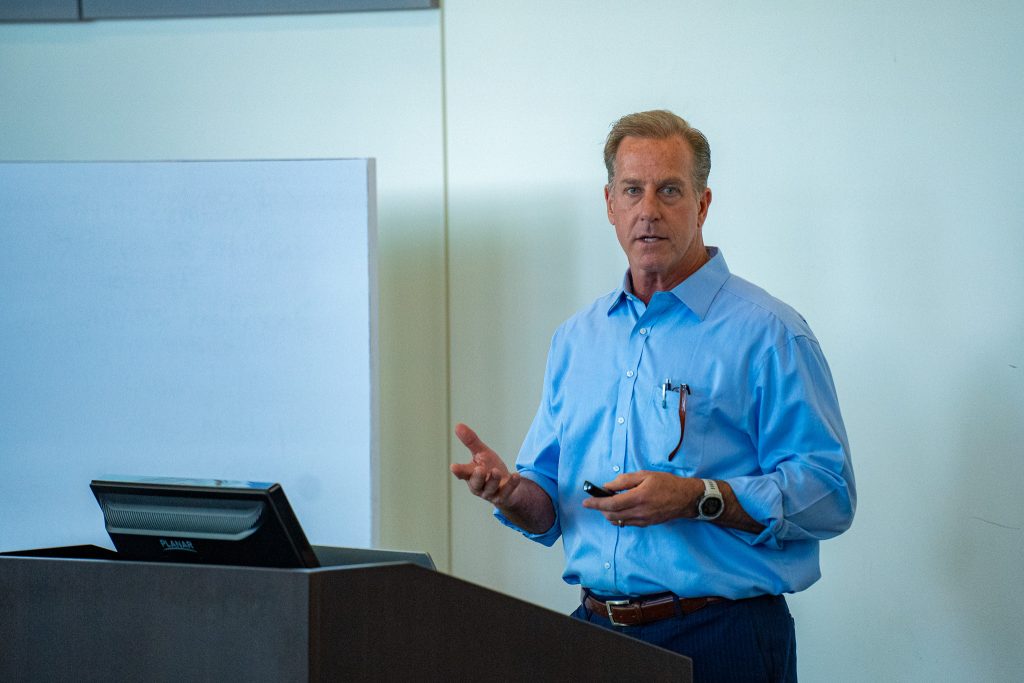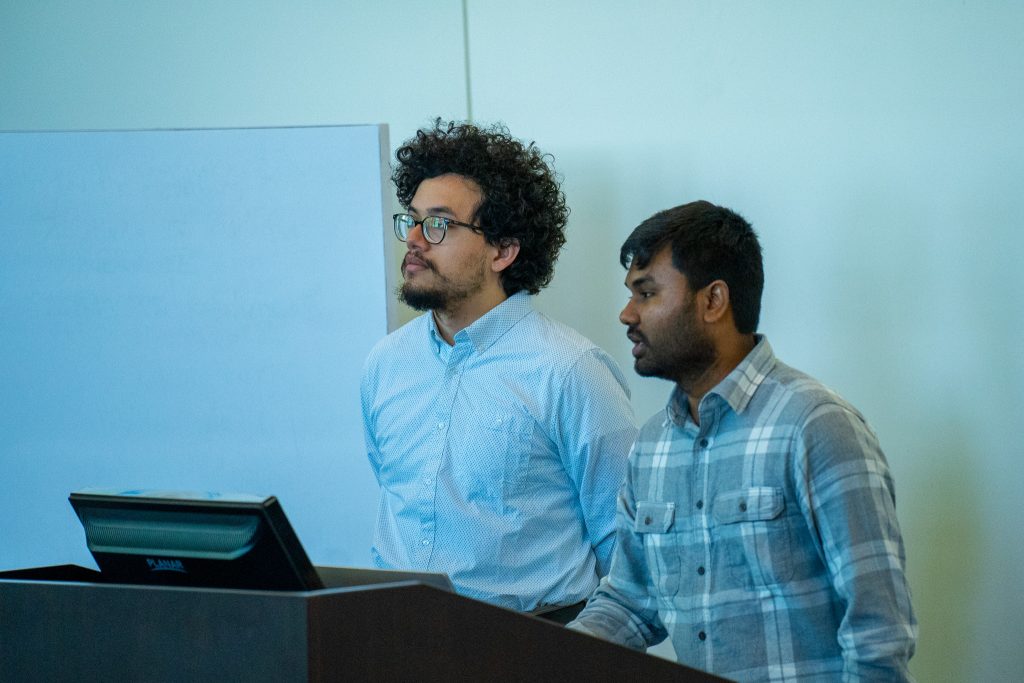
Celebrating the pivots | Regional I-Corps program wraps up
The program is a three-week long intensive customer discovery and commercialization program.
The customer discovery process can be sobering when trying to bring a product or service from the laboratory to market. For many researchers, it may be the first time they understand what people are willing to pay for their innovation.
During the three-week regional Mid-South Innovation Corps (I-Corps) program, which is funded by the National Science Foundation (NSF) and hosted locally by the University of Tennessee, Knoxville’s Office for Research, Innovation, and Economic Development (ORIED), start-ups were tasked with completing 20 customer interviews.
The interviews aim to identify market needs, understand consumer pain points, identify a price point, and pivot (if necessary).
“We always celebrate pivots because it means your company is one step closer to finding your market fit,” Shawn Carson said at the opening workshop. He teaches entrepreneurship courses at the university.
Some of the companies in the I-Corps program experienced a need to pivot their products, others changed their target consumer, and some received feedback on how to make their product or service better.
Nearly all the companies that participated in the program completed their 20 customer interviews, and the results were fascinating.
Altus Solutions is a data-driven company utilizing technology-enabled solutions to end human trafficking. Its goal is to elevate its JusticeU platform (which already has about 6,000 members).
Members of the start-up shared that their 22 interviews were primarily with leaders of churches, schools, and social services who shared a desire to end human trafficking. They found many churches were passionate about the cause, but not necessarily sure how educational material would be of benefit to the broader congregation. Furthermore, paying for the platform presented many issues.
Instead, they found it more likely for curriculum to be implemented into educational awareness programs at schools.
“We also found that we cannot just go knock on every church and school door in the country. We need someone to act as an engine, and a champion to drive the mission at the local, state, and federal level,” said Steve Grissim, Altus’s Chief Business Development Officer.

Other companies, like FoodConnect, found a bit more footing in the marketplace. Dr. Nagwan Zachry said she interviewed 20 students at the University of Tennessee at Chattanooga about their thoughts on nutrition apps.
She found that students are actively seeking information about nutrition and healthy lifestyles. Additionally, while she discovered that a few students would be willing to pay a subscription fee, the majority are less likely. So, instead, she is setting up meetings with restaurant owners to find new ways to generate revenue.
Additionally, she learned that the strongest marketing tool she should invest in to target college-aged students is hiring influencers to promote the app on social media.
The team with NorDIC LAB, which was comprised of Diego Ferrer and Md Rahatul Islam Udoy, experienced a different response than they originally hypothesized. The new information allowed them to pivot toward developing a more user-friendly product that contains sought-after features.

The team did more than 23 customer interviews, 19 of which were in person. They found that 62 percent of people consider the camera quality in a phone to be in the top three criteria for purchase. Additionally, they found most people would be willing to carry around heavier devices if the camera quality was excellent.
“It shifted our value proposition and is now sending us in a different direction for development,” Ferrer said.
The companies that completed their 20 customer interviews in the regional I-corps program will be eligible for the NSF National I-Corps program, which would fund $50,000 toward commercialization efforts.
Like what you've read?
Forward to a friend!

